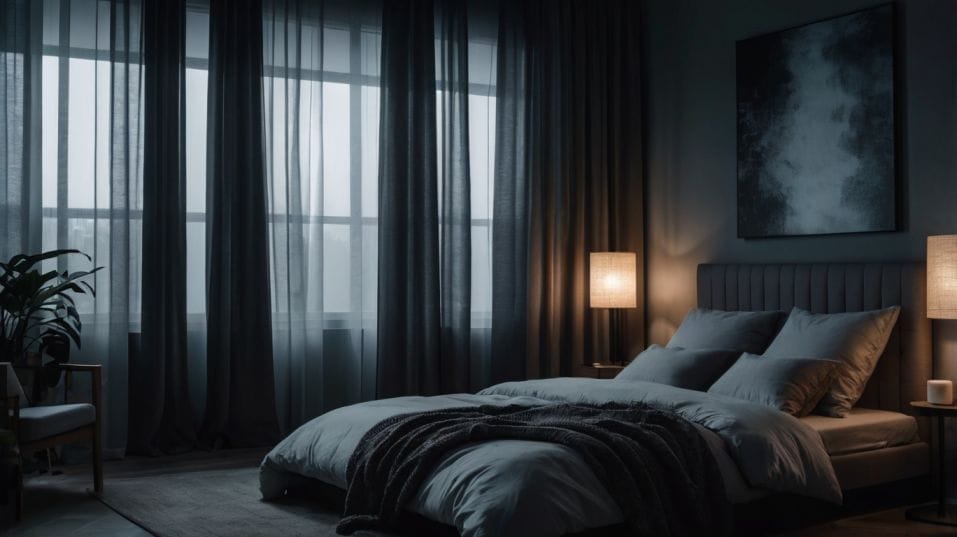The Relationship Between Restorative Sleep and Resilience
Unlock better sleep that boosts focus, recovery, and resilience—no hacks or fluff, just real science and simple steps that work tonight.

What if better sleep isn’t just about feeling rested—but about becoming unshakable? Most people chase more hours in bed and still wake up drained.
The real game-changer? Restorative sleep—the kind that builds resilience from the inside out. It sharpens your mind, steadies your mood, and resets your stress response.
You don’t need perfection. You need strategy. And once you understand how quality sleep works, you can train your body to bounce back stronger, night after night.
What Counts as Restorative Sleep?
Not all sleep is created equal. Restorative sleep is the kind that actually does the heavy lifting—repairing tissue, balancing hormones, resetting your nervous system, and filing away mental clutter so you’re not carrying it into the next day.
This kind of sleep happens in phases. Deep sleep (slow-wave sleep) is when your body gets to work—muscle repair, immune support, cellular cleanup.
REM sleep is where your brain gets to sort out the emotional and cognitive mess from the day. You dream. You process. You form connections that make learning stick and stress fade.
You need both. And the kicker? You can’t force them. But you can create the conditions that make restorative sleep more likely to happen, night after night.

Why Resilience Is a Sleep-Driven Superpower
Resilience isn’t just a mindset. It’s your nervous system’s ability to reset. It’s your hormones staying balanced under pressure.
It’s your prefrontal cortex (the decision-maker) staying online instead of going offline when things get intense. Sleep, especially the deep and REM stages, plays a key role in all of that.
During high-quality sleep, your brain clears out stress hormones like cortisol and recharges neurotransmitters like dopamine and serotonin that help with focus, motivation, and emotional stability.
So when your sleep is on point, you don’t just “feel better”—you become biologically more equipped to handle chaos, uncertainty, and mental strain.
That’s not theory. Studies show that people who get consistent, high-quality sleep are less likely to burn out, more adaptable to change, and more likely to stay emotionally regulated in stressful situations. In short: better sleep makes you harder to shake.
Sleep Debt Is the Silent Killer of Resilience
Here’s the part most people get wrong. You can’t stockpile resilience. You can’t “push through” weeks of garbage sleep and expect to bounce back with one good night.
Sleep debt doesn’t just mean you’re tired—it means your baseline is compromised. You’re reacting more, thinking less, recovering slower, and stressing harder.
Every night of poor-quality sleep chips away at your buffer. The good news?
The fix doesn’t mean sleeping 10 hours a night or quitting your life to become a sleep monk. It means rebuilding your rhythms and stacking your habits in the right direction.
How to Engineer Sleep That Builds Resilience
Let’s skip the fluff. You don’t need lavender candles or a $600 mattress to make this work. You need rhythm, clarity, and consistency.
Lock in your body clock
Your circadian rhythm is your internal timekeeper. It controls when you feel sleepy, when hormones get released, and when your brain starts flushing toxins.
Going to bed and waking up at the same time every day—even on weekends—is the fastest way to train your body to hit deep sleep more reliably. Even a one-hour shift can throw you off. Choose a time window and defend it.
Create a no-brainer wind-down routine
Don’t overthink this. Just stop feeding your brain junk right before bed. That includes bright light, information overload, and last-minute stress triggers.
An ideal wind-down takes 30–60 minutes and includes low lighting, screen cutoff, and a consistent signal that it’s time to slow down—maybe light stretching, reading a real book, or listening to calming audio.
What matters most is that it’s the same every night. Predictability is what helps your brain transition.
Control your environment like a pro
Your bedroom should be designed for one thing: sleep. Cool temperatures (ideally between 60–67°F), pitch darkness, and silence or white noise give your brain the green light to drop into deep sleep.
Get blackout curtains. Use a fan or white noise app. Move your phone out of arm’s reach. Small tweaks here have massive impact because your body responds automatically to these cues.
Use your mornings as a reset button
Want to sleep better tonight? Start with how you wake up. Morning sunlight is the most powerful circadian regulator available.
Within 30–60 minutes of waking, get outside or at least sit near a window. This tells your brain it’s daytime, which makes your melatonin cycle more precise—and helps you feel sleepy at the right time later.
Stop rewarding burnout
Your brain learns from outcomes. If you constantly push through with caffeine, doomscrolling, or adrenaline, it adapts—to dysfunction.
Instead, reward rest. Protect sleep like your performance depends on it (because it does). When you prioritize recovery, you train your nervous system to stabilize faster, adapt better, and sustain focus without burnout.
Real Results, No Hype
Let’s ground this in your reality. When you improve your sleep, you don’t just wake up refreshed—you show up better. More consistent mood. Fewer energy crashes.
Better workouts. Sharper focus at work. You’re more patient with people. More decisive under pressure. You recover from hard days faster and build momentum without running yourself into the ground.
You’ll still have tough days. But your resilience won’t get knocked flat every time something goes sideways. That’s the difference between coping and thriving—and it starts while you sleep.
Final Thoughts
Restorative sleep is your most powerful resilience tool—and it’s free, daily, and fully within your control. No hacks, no pills, no complicated routines. Just a commitment to making your nights work for you, not against you.
The best time to start? Tonight. Don’t wait for burnout or breakdowns. Get serious about your wind-down, reclaim your mornings, and defend your rhythm. Resilience isn’t just about pushing harder.
It’s about recovering smarter. Start now. Protect your sleep like your future depends on it—because it does.




